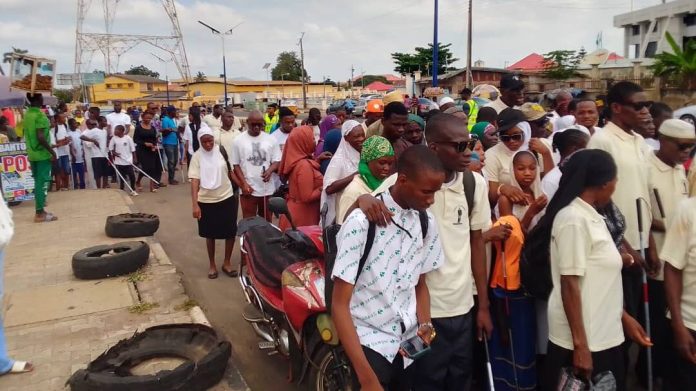Ilorin, Kwara State – As the world gears up to mark White Cane Safety Day on October 15, the National Association of the Blind (NAB), Kwara State chapter has made a passionate appeal to governments at all levels to ensure public structures are accessible to persons with disabilities. The call aligns with the Discrimination Against Persons with Disabilities (Prohibition) Act, which mandates accessibility in public infrastructure.
In a sensitization walk held in Ilorin to commemorate the day, the Association expressed concern over the persistent inaccessibility of both old and newly constructed public buildings, despite the five-year deadline stipulated in the Act for compliance.
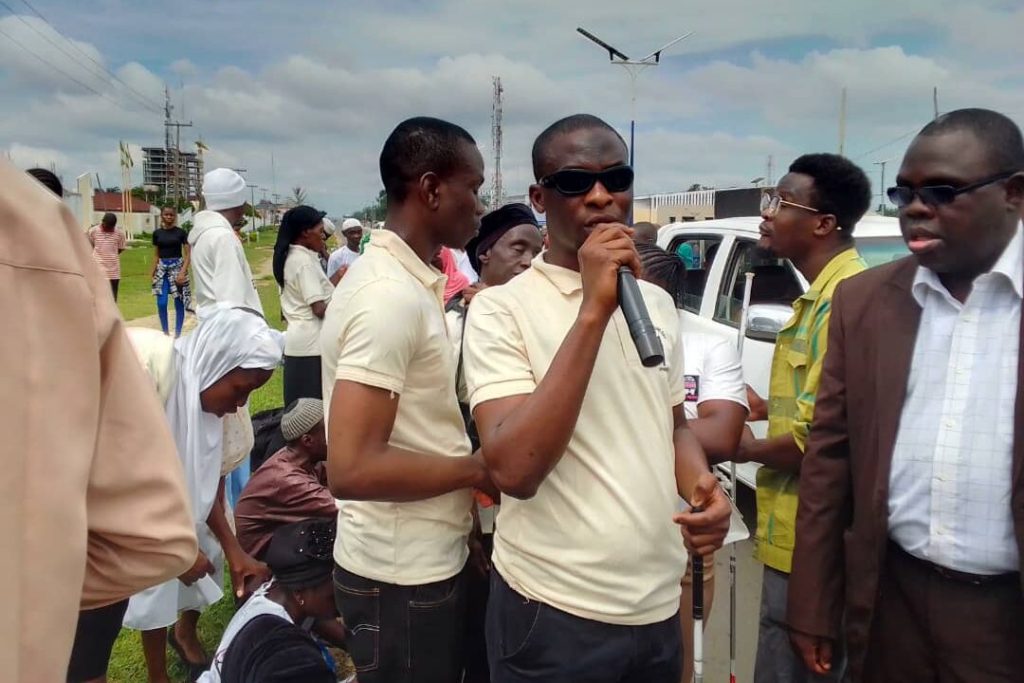
“Accessibility is a Right, Not a Privilege”
Addressing journalists during the walk, NAB Kwara Chairman, Mr. Akeem Lawal, lamented the lack of progress, stressing that persons with disabilities continue to be excluded from accessing essential services such as banks and healthcare facilities due to inaccessible public buildings.
“It does not give us any sign of relief that in the near future, we will begin to enjoy accessibility,” Lawal said. “This deprives us of basic services that everyone else can access, leaving us on the sidelines of society.”
Lawal further emphasized the need for equal access and an end to discriminatory practices. He called for an inclusive society where persons with disabilities (PWDs) are actively involved in decision-making processes and appointed to key leadership positions to safeguard their interests.
“Once PWDs accept their condition, the next step is access. When access is guaranteed, there is no limit to what we can achieve,” he said.
Skills, Employment, and Independence
Lawal also advocated for the empowerment of PWDs through skills development programs to promote self-reliance and reduce dependency. He urged the government to create employment opportunities that allow persons with disabilities to contribute meaningfully to the economy.
The White Cane: A Symbol of Freedom and Inclusion
Speaking on the significance of the White Cane, Mr. Abioye Opadokun, a member of the association, described it as a symbol of freedom, independence, and inclusion for visually impaired persons.
“The white cane symbolizes liberty,” Opadokun noted. “It gives us the independence to move freely and the confidence to navigate the world without fear.”
Opadokun also dispelled myths surrounding the white cane, explaining that some members of the public mistakenly believe holding a white cane could make them blind.
“Holding a white cane won’t make anyone blind. That is part of the reason for today’s awareness—to foster understanding, inclusion, and robust engagement between us and our non-disabled counterparts.”
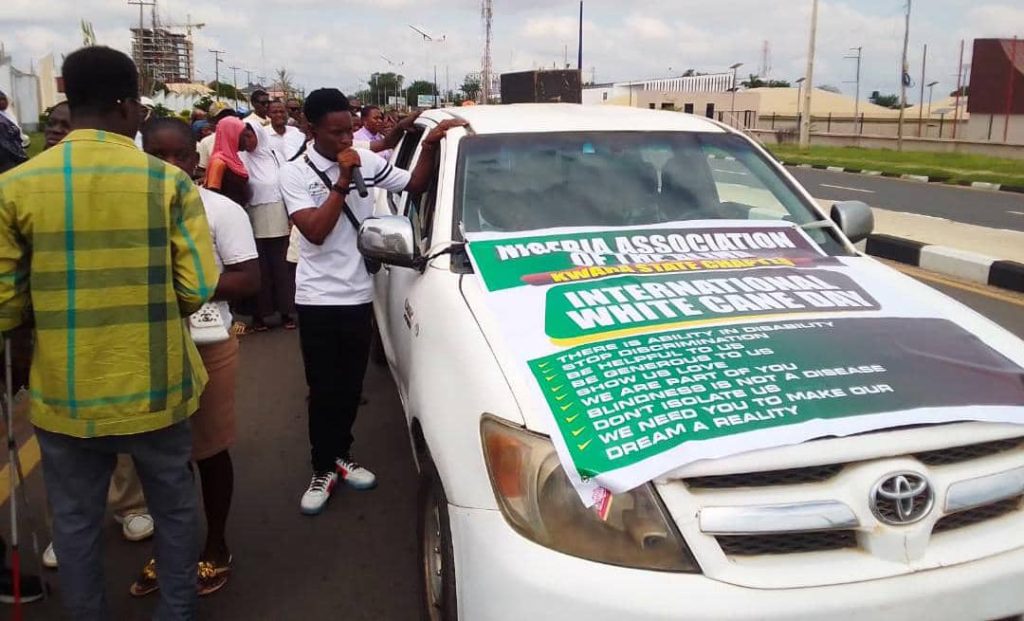
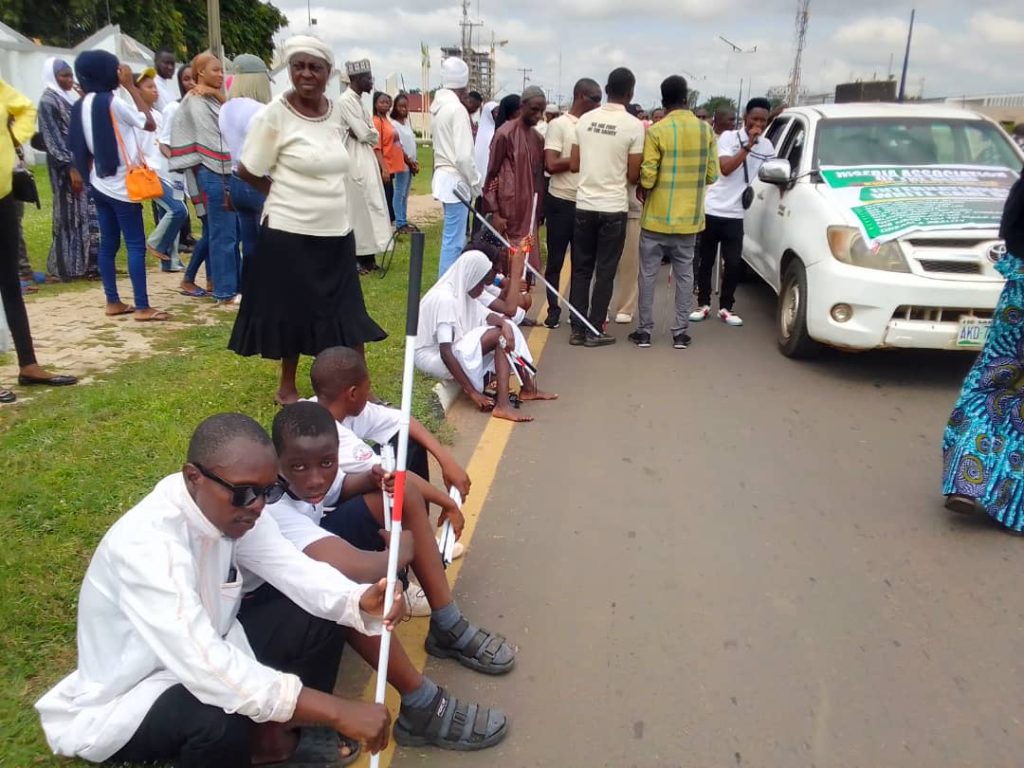
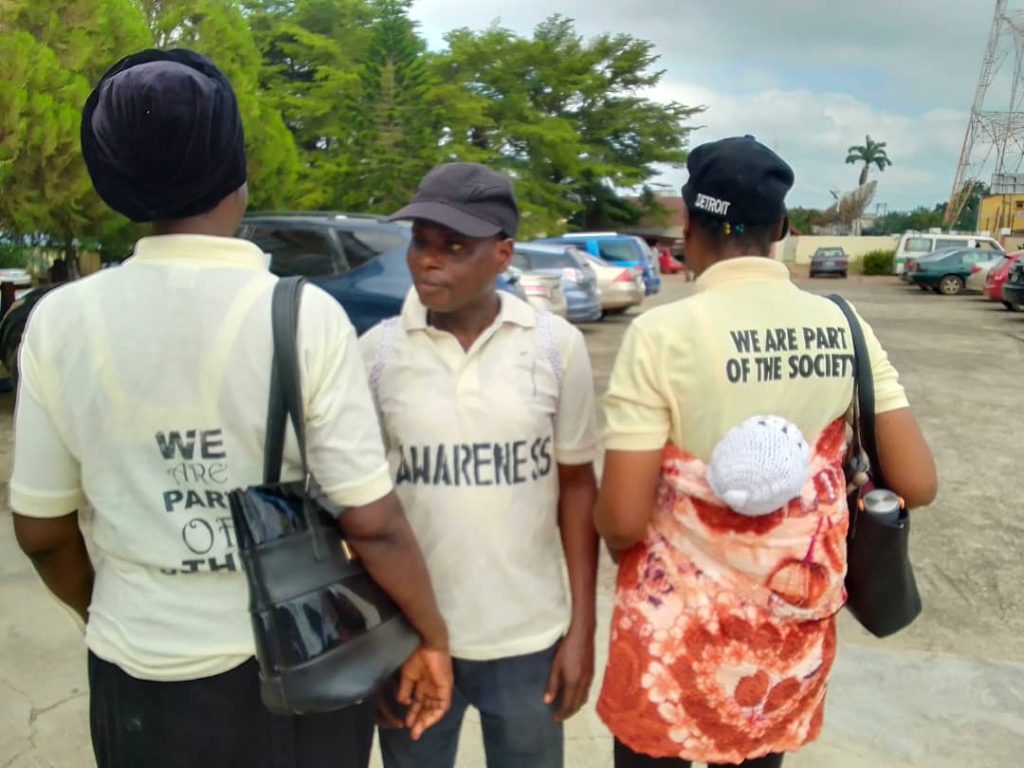
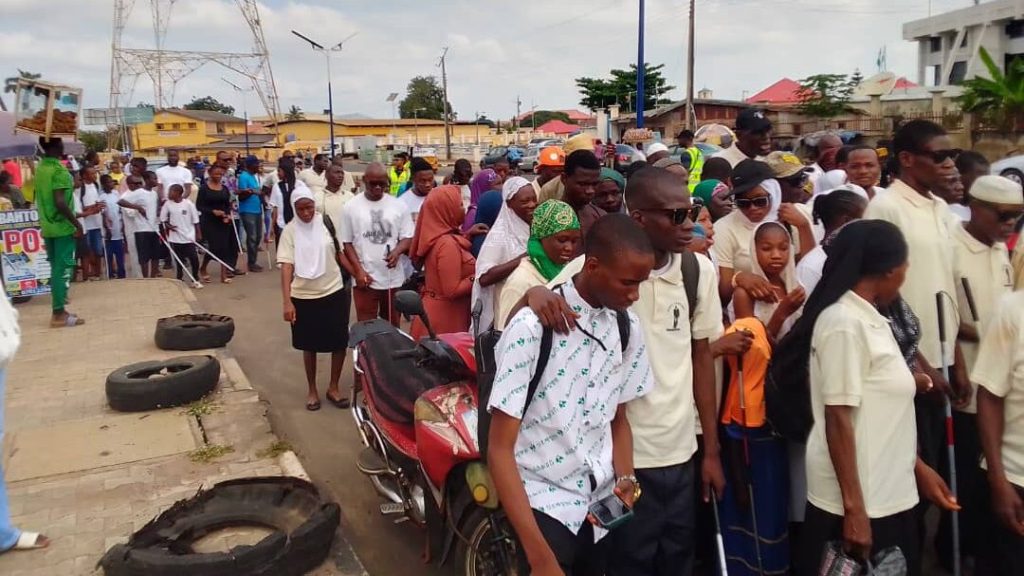
Participants Share Their Experiences
During the event, other members of the association shared personal stories of challenges they face, particularly with public perception and infrastructure. They stressed the need for a society that recognizes their abilities and offers support, especially with road safety and public interactions.
“We need public orientation,” one participant said. “When people see us trying to cross the road with our cane, they should know we might need help.”
Another member added, “There are many challenges with using the cane, especially on roads without proper pedestrian infrastructure. We need the government’s help to make roads safer for us.”
Promoting Inclusion, Celebrating Abilities, Advocating Access
White Cane Safety Day, observed annually on October 15th, was first established in 1964 to raise awareness about the challenges and successes of visually impaired persons. This year’s theme—“Promoting Inclusion, Celebrating Abilities, and Advocating Access”—reflects the ongoing struggle for equality and the push for a more inclusive society.
As NAB Kwara members and other stakeholders continue to advocate for accessible public spaces, they hope that conversations initiated on White Cane Day will spark lasting changes to improve the lives of persons with disabilities in Nigeria.
Through these efforts, the Association believes that society will move closer to true inclusion, where every individual—regardless of ability—can thrive, contribute, and belong.

